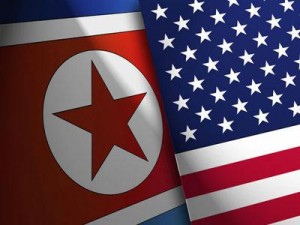This past week a harsh reality set in for Matthew Miller, a U.S. citizen sentenced to six years of hard labor in North Korea. What started out as a whim to rip up his tourist visa and “infiltrate” the North Korean prison turned into a 90 minute trial and imprisonment. Considering punishments of espionage, the act Miller was charged with, can range up to ten years, this may be viewed as a cake walk.
But cake walk or not, Miller pleads to the U.S. government to save him from his own decisions. This is not the first time Americans have sought help from the government. Currently, Jeffrey Fowle awaits trial while Kenneth Bae serves a 15 year sentence for what the Korean Court deemed as “hostile acts”. But such cries for help date back to 2009 and 2010 where Former Presidents Clinton and Carter took it upon themselves to help vindicate sentenced American prisoners.
There are a series of arguments that can be made here. Many choose to advocate for American intervention, despite our country’s nonexistent relations with North Korea and strong advisory against traveling their. Others present the tough-love route: you chose this venture, you must deal with the consequences.
What is the appropriate view here? Is there such a thing in a situation like this? So far, it seems that President Obama is taking the latter route, with no response to Miller’s letter asking for government intervention. The legal argument here stems from the fact that the U.S. does not have relations with the communist country of North Korea, let alone negotiation tactics and goals, so why should intentional disregard of such ways be rewarded with the U.S. government acting as the white knight?
Another issue involves the organizations that facilitate and promote traveling to North Korea. Are these countries exuding a disservice to their country by providing such services and information? Or are these companies working to promote the life of a diverse traveler, despite the consequences that may arise? Furthermore, is it beyond the government’s powers to control such companies or organizations? If Americans keep testing the boundaries between national disloyalty and wanderlust, these are questions that will need to be answered concretely.
Sources: Time, CNN, The National Journal, AP

It is very difficult to form an opinion when nobody knows what really happened. I read several news articles reporting on Mr. Miller’s arrest and each one of them provides readers with a little twist on the details. For example, CNN reports that he ripped up his tourist visa and claimed asylum, but Newsweek states that Miller actually said he would like to experience life in North Korean prison. I don’t see how anybody would be able to decide whether help from the United States should be provided when the details are so “murky.” Nonetheless, I believe that so far there is not enough convincing evidence, that Miller has done something so atrocious as to deny him any kind of aid. He is a United States citizen, and even though I personally do not see any logic, or explanation for his actions, the US cannot simply pretend this never happened. I am not saying that an official should get on a plane and come to his rescue, but the government needs to at least collect all the facts before making a decision about how to proceed. If it is found that he ended up in the situation out of his own stupidity; by going to North Korea even though traveling there is discouraged and tearing up his visa asking for asylum, then maybe it would be best to let him suffer the consequences. In my point of view, the decision whether or not to aid should be made on case-by-case basis.
Although many may be disconcerted at the thought of American civilians being imprisoned in North Korea, I think the United States should not intervene on their behalf. The U.S. government should make an example of them by showing that those who wish to wander off into North Korea do so at their own risk. Our relationship with North Korea has always been tense, and it is important, politically and militarily, that we do not appear weak or vulnerable. As you stated, the U.S. does not have much in negotiation tactics and goals with North Korea. Every time there is a negotiation to free a prisoner, the U.S. must give something up something important in return.
Although Miller’s reasons for going into North Korea may be noble, I believe that the political reasons for not intervening on his behalf outweigh the moral benefits of intervention. In my opinion, I think that Miller is a fool and wanted to make a name for himself. He intentionally disregarded the tense and delicate situation between the U.S. and North Korea, and should now have to pay the price for it.